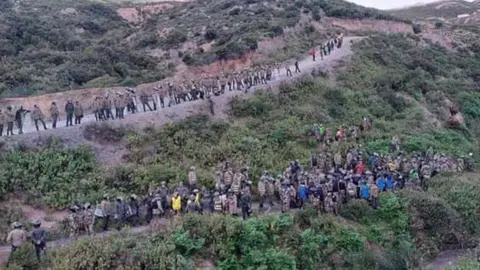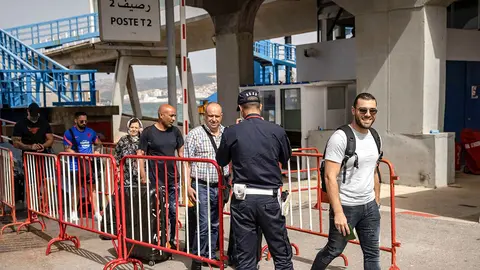Morocco fights illegal migration
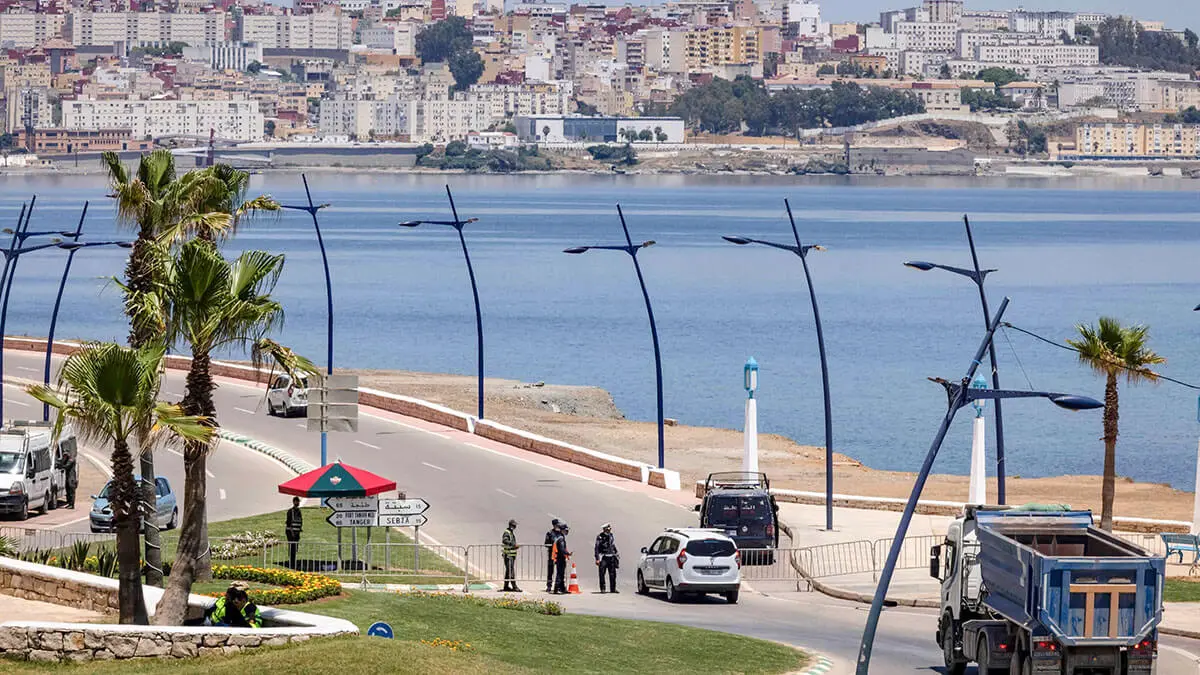
Morocco's General Directorate of Territorial Surveillance (DGST) arrested six people for allegedly disseminating false digital content promoting illegal migration, a persecuted activity that serves to profit criminal organisations and endangers the lives of thousands of migrants who risk their lives to have a better future far from the poor conditions in their countries of origin.
As reported by various media at the time, such as La Vie Eco, the DGST arrested these six people suspected of inciting illegal migration in the Moroccan cities of Tetouan, Casablanca, Zoco Larbaa, Ksar El Kebir and Tangier.
Inmigrantes ilegales marroquíes han llegado a la playa de Tarajal (Ceuta) colándose entre los bañistas. Un policía resultó herido por una pedrada durante el asalto. pic.twitter.com/8QCcUjSTkn
— Vloonk (@vloonk) August 25, 2024
Elements of the Prefectural Service of the Tetouan Judicial Police, in coordination with the services of the DGST, managed to catch these six people, including a minor, aged between 16 and 31, for their alleged involvement in the dissemination of false information and digital content inciting illegal emigration, according to information received from Moroccan territory.

According to a security source, the DGST's computer surveillance services detected publications and digital content allegedly informing about the preparation of an assault on the security fence located between the city of Fnideq and the Spanish autonomous city of Ceuta and inciting users of social networking sites and applications to emigrate illegally.
Investigations have led to the identification of the suspects and their arrest in the cities of Tetouan, Casablanca, Zoco Larbaa, Ksar El Kebir and Tangier.
Imágenes de la entrada ilegal de inmigrantes en #Ceuta desde #Marruecos pic.twitter.com/LoxqWzedsB
— Indicativo Zeta (@Indicativo_Zeta) August 25, 2024
The persons in question are the subject of a judicial investigation conducted under the supervision of the competent prosecutor's office, in order to determine the true motivations of these alleged criminal acts, the same source stressed, adding that searches and investigations are continuing in order to catch all accomplices involved in the creation and dissemination of this type of content.
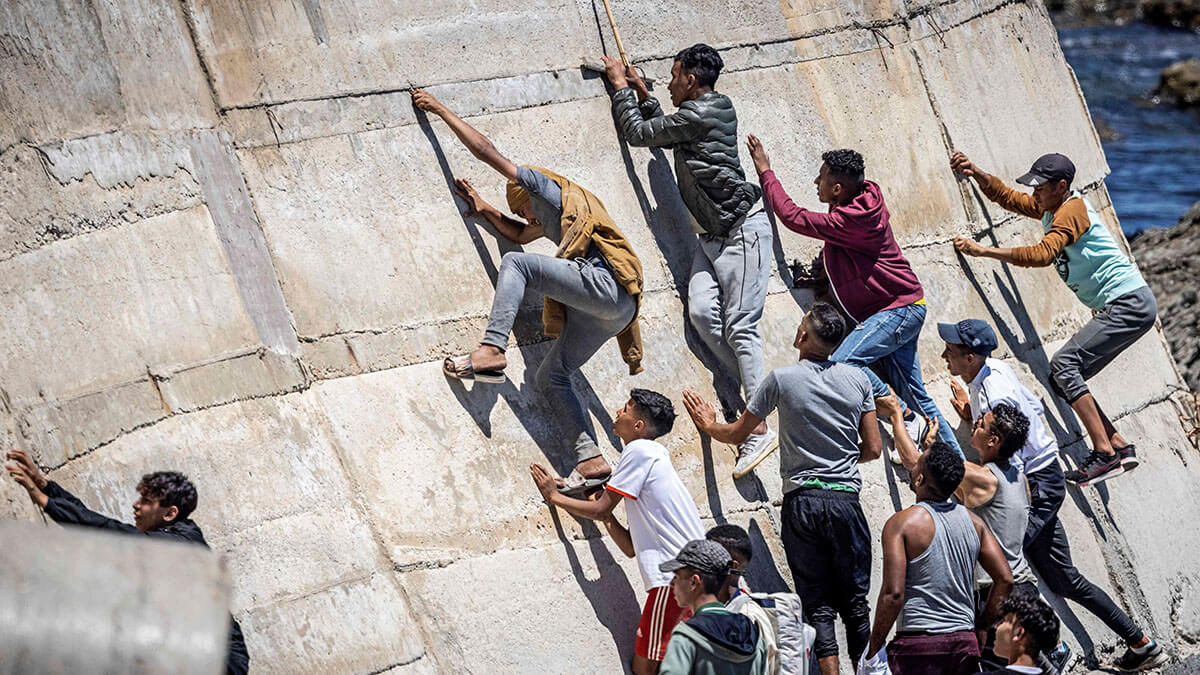
This security operation is part of the strict measures and intensive efforts made by the Directorate General of National Security (DGSN) and the DGST itself to fight against networks involved in illegal migration and human trafficking.
Illegal migration is again becoming a worrying problem with hundreds of migrants entering illegally at hotspots such as Ceuta.
Recently, more than 300 migrants entered illegally through Ceuta's fence and breakwater in just two weeks.
The Spanish Ministry of the Interior has made public the balance of the entries in the second half of August, with a large increase which has caused alarm to the point of provoking a significant reaction from Morocco and an increase in security force personnel in the city of Ceuta, demonstrating the good collaboration between the Spanish and Moroccan security forces on security issues, such as the fight against organised criminal gangs dedicated to the illegal trafficking of people.
Una argelina da a luz en la ciudad española de Ceuta tras nadar 5 horas desde Marruecos - Infobae https://t.co/VSXqjs4hvn
— KhLef (@Klefdaya) September 3, 2024
In just 15 days, a total of 312 people have entered by land, i.e., fences and jetties. In total, since 1 January, 1,917 people have entered by the same route. This is a clear reflection of the pressure registered in this period, when hundreds and hundreds of people took to the sea with the intention of crossing, above all, the Tarajal breakwater.
Compared to 2023, there is an increase of 1,267 people, i.e. 194%.
In the same period, 15 days, a total of 4 people have entered Ceuta by sea, i.e. in boats, as reported by the media El Faro de Ceuta.
Recently, the Tarajal beach in the autonomous city of Ceuta was also evacuated due to the entry of a dozen migrants, including children, from Morocco after reaching the coast by swimming.
They mingled with local bathers enjoying a day at the beach, which caused confusion among the security forces.
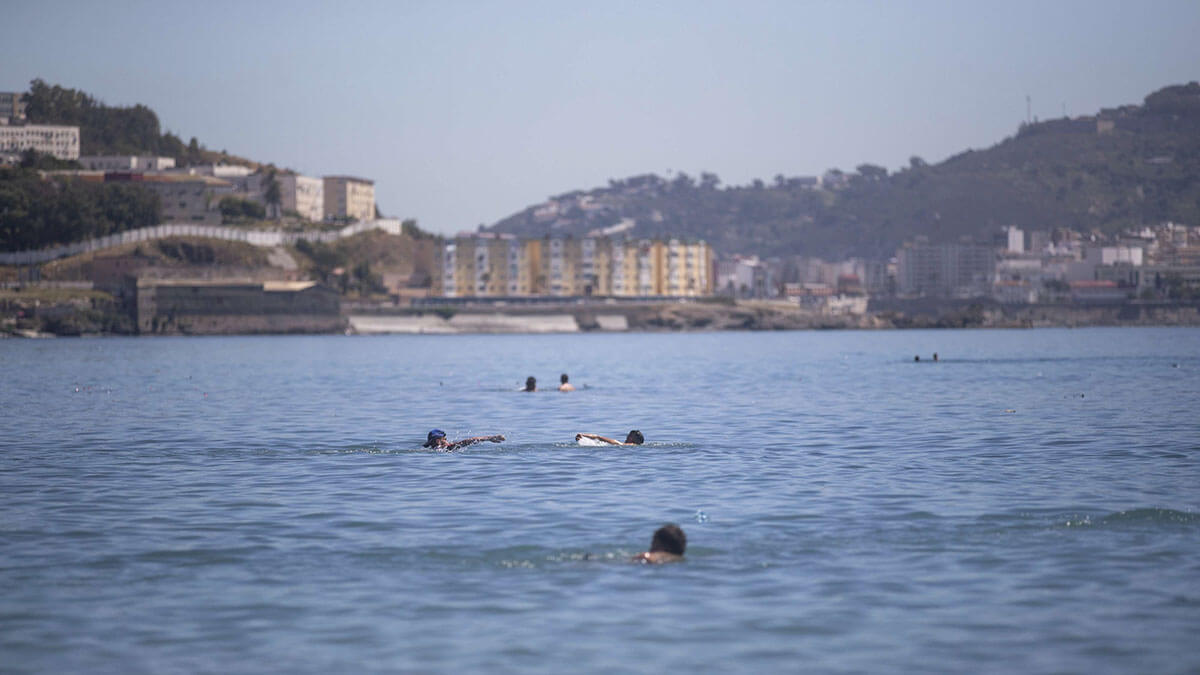
Increasing Algerian presence
Among the groups of immigrants crossing the border between Spain and Morocco, there are more and more Algerians, who are trying to reach Ceuta through Moroccan territory, as reported by various media such as Le 360 or Assabah.
More and more Algerians are trying to reach the Spanish autonomous city of Ceuta via Morocco to wait for the opportunity to swim to Spain, risking their lives.
Illegal migrants from Algeria have changed their migration trajectory towards Europe. Whereas they used to try to reach Europe via Libya and Turkey, they now try to reach the northern cities of Morocco, from where they can reach Ceuta before attempting to cross to Spain.
According to the media outlet Assabah, the number of Algerians entering Morocco has increased considerably in recent times.
According to various sources, these Algerians are fleeing political repression in their country to seek better living conditions in Spain and Europe in general. In the Ceuta area, they feel safer than in the Algerian, Tunisian, Libyan or Turkish coasts, where the dangers are greater in the face of the gangs based in the areas that use harsher methods in this migratory process. Several of these migrants could have to do with the Hirak social movement that has been demanding structural changes in Algeria for years in the face of the corruption of the established power in a state led mainly by the high command of the army and the dominant National Liberation Front party.

